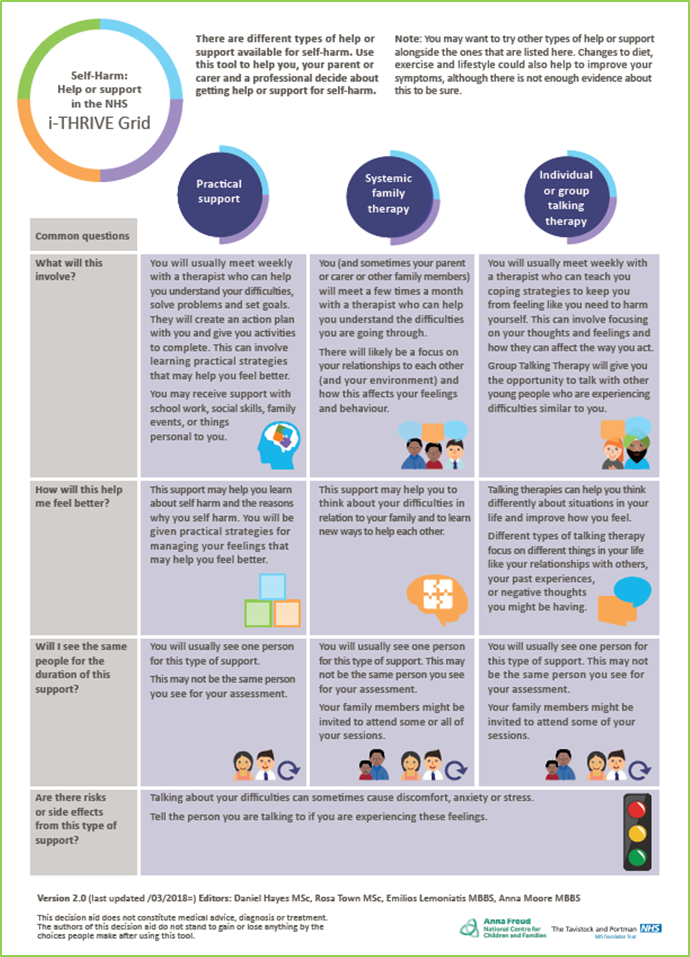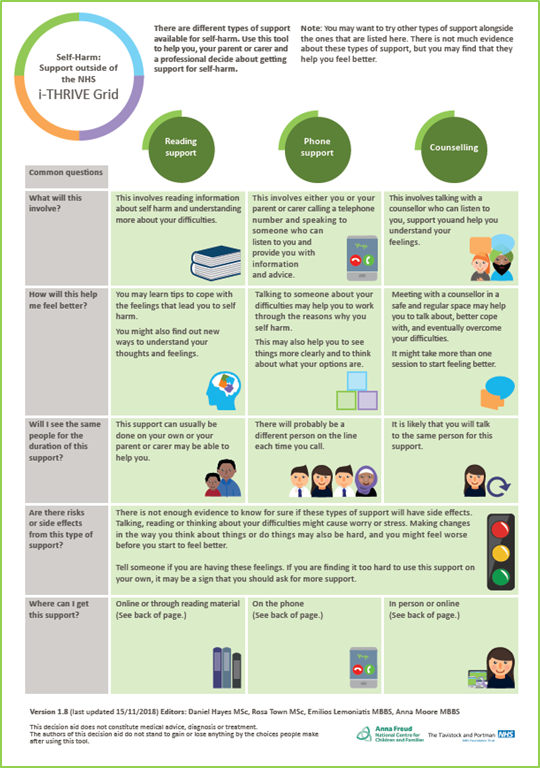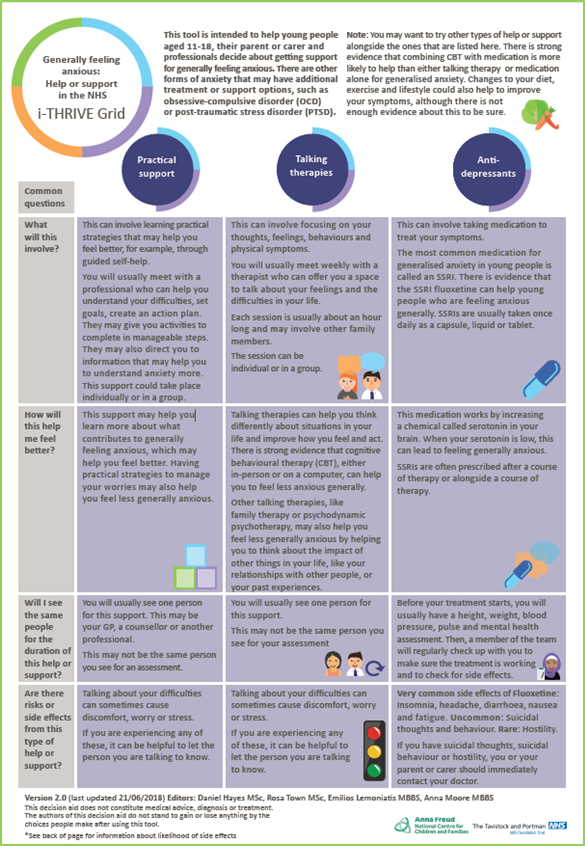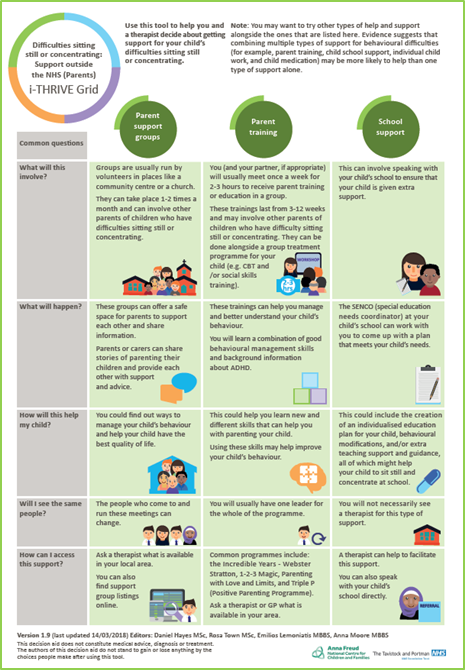Shared Decision Making to Facilitate Personalised Care
The Shared Decision Making Academy Module was developed by Rosa Town, Research Officer for i-THRIVE Grids, in collaboration with the National i-THRIVE Programme team and the i-THRIVE Scaling Up team in NELFT, to train mental health professionals to use the i-THRIVE Grids to improve shared decision making in their practice. Entitled ‘Shared decision making to facilitate personalised care’, upon completing this training module, attendees will be able to:
- describe the five needs based groupings identified in the THRIVE Framework for system change (Wolpert et al., 2019) and describe how the THRIVE Framework benefits children, young people and their families;
- understand the role of the National i-THRIVE Programme in supporting implementation of the THRIVE Framework for system change;
- explain the research behind shared decision making and personalised care and why it is important in the context of child and adolescent mental health and wellbeing;
- identify how shared decision making is used within the THRIVE Framework for system change to benefit all stakeholders;
- explain the benefits of using i-THRIVE Grids as a tool to promote shared decision making;
identify where and when you will start to use the i-THRIVE Grids in your work with young people and their families, and; - be accredited to use the i-THRIVE Grids in their practice.
i-THRIVE Grids
The i-THRIVE Grids are paper-based decision aids co-produced with young people, parents, and mental health professionals. The grids were funded by a Health Foundation ‘Innovating for Improvement’ grant. They have since been introduced in the North East London NHS Foundation Trust (NELFT) as part of the i-THRIVE Scaling Up Improvement Project, also funded by the Health Foundation. These tools can be used with a young person, a parent, and a mental health professional to facilitate conversation around treatment or care. To date, eight one-page grids have been developed covering low mood, self-harm, ADHD, and generalised anxiety. Five of the grids received endorsement from NICE in June 2018.
Further details about the history of this project can be found here.
Who is best to attend?
Specialist CAMHS, community and voluntary sector providers of the Getting Help and Getting More Help offer across the system.
This training was successfully piloted with mental health practitioners in the Tavistock and Portman NHS Foundation Trust and NELFT from February to May 2018. Costings for delivery can be found in section 5 here.
Example i-THRIVE Grids




NICE Endorsement Statements
Case Studies
- Developing and piloting i-THRIVE Grids
- Using i-THRIVE Grids to improve shared decision making: i-THRIVE Academy Module pilot evaluation
Conference Posters
- Theory and behaviour change techniques (BCTs) for SDM interventions in child and youth mental health
- Understanding the most important treatment FAQs for young people with ADHD
CollaboRATE – Shared Decision Making Assessment Tool
CollaboRATE (Elwyn et al., 2013) measures young people’s level of shared decision making following a clinical encounter, from the perspective of young people themselves or their parents/ carers. Its three items consist of the following questions:
- How much effort was made to help you understand your/ your child’s health issues?
- How much effort was made to listen to the things that matter most to you about your/ your child’s
health issues? - How much effort was made to include what matters most to you in choosing what to do
next?
To find out more about the module and how to gain accreditation to use the i-THRIVE Grids, please contact the team at ithriveinfo@tavi-port.nhs.uk.